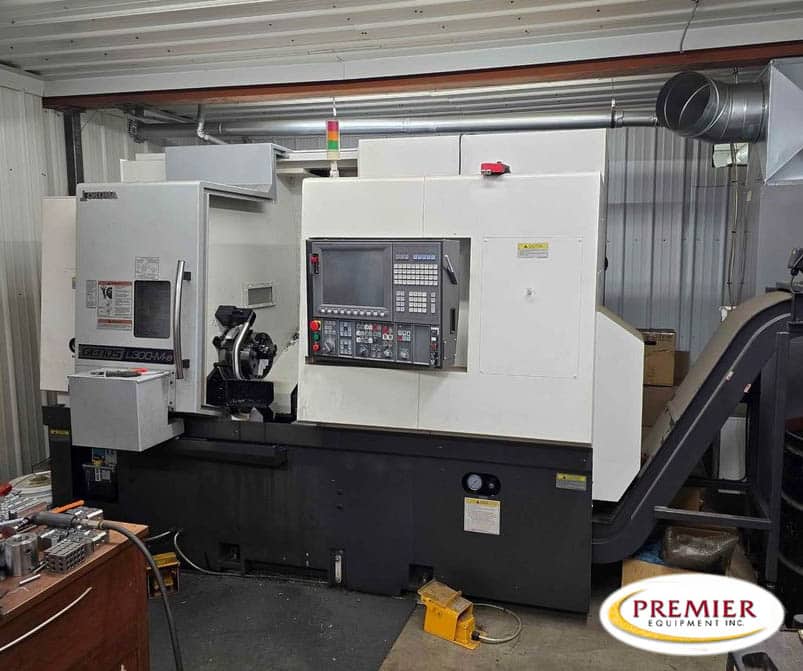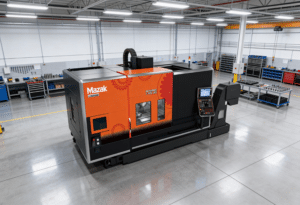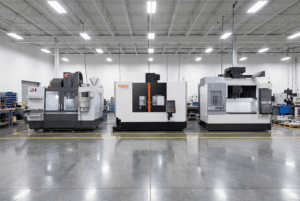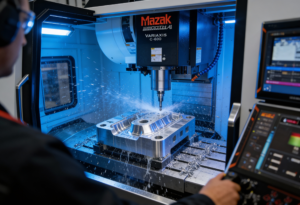The Role of CNC Machines in Silicon Valley
Silicon Valley runs on technology and innovation—everyone knows that. But in this economically vital part of California, it’s really CNC machines that hold everything together. Sure, they’re just one component of the tech industry, but they are doing a job that can be found nearly nowhere else, except perhaps in an automotive or aeronautic industry setting. When you think about how the tech economy works, you should think about CNC machines as the heart of everything.
Importance of CNC Machines in Silicon Valley Manufacturing
Silicon Valley depends on CNC machines for manufacturing for a number of reasons. Above all, they offer speed and accuracy. Anything produced with CNC under a human “minding” the machine performs better and more reliably. The quality is an order of magnitude (or two or three) above anything that can be achieved with any other manufacturing method. Except for 3D printing, the CNC machines are probably found today in every common manufacturing setup you can think of. They are the basis for everything we consider to be high-tech.
Applications of CNC Machines in Tech Companies
For instance, firms such as Apple and Google profoundly depend on the computerized process known as CNC (Computer Numerical Control) to fabricate the complex components necessary for their products. CNC often pops up in discussions about 3D printing and milling of parts where it’s not as visible as the ingredients of the actual “machines” since the evidence of its work is always left in the result—i.e., the device casing parts that businesses produce, from the sleek aluminum outline of an iPhone to the gears and levers inside a Google server.
Types of CNC Machines Used in Silicon Valley
Silicon Valley’s tech industry employs various CNC machines, each tailored to perform certain tasks. These machines take away material from workpieces as they rotate cutting tools. They are adaptable and can fashion intricate shapes and designs. That’s why they are excellent for manufacturing parts like phone casings and laptop shells.
CNC Lathes: The Basics of Symmetrical Machining
These machines, better known as CNC lathes, serve the most rudimentary of machining processes: the turning operation, where the workpiece is made to go around while a tool cuts into it. They’re the most basic machines that work to produce parts with symmetry around some axis. And these machines can be counted on to produce these kinds of symmetrical shapes with millimeter precision, no matter their size.
Advanced CNC Machines: Beyond Grinding
Machines like these excel at grinding tasks, offering unparalleled surface finish and accuracy. This makes them perfect for producing precision parts. However, calling them “grinders” rather undersells their capabilities. For one, they aren’t limited to using the age-old abrasive wheel; as CNC machines, they can also use lasers to slice through virtually any material with a perfectly clean cut. And for another, they can execute the most elaborate parts imaginable, as long as said parts are drawn up using computer-aided design (CAD).
Leading CNC Machine Brands in Silicon Valley
In the dynamic Silicon Valley tech scene, certain computer numerical control (CNC) brands stand out as leaders. This is because of their enduring reliability, enormous precision, and uncommon innovation in this very high-tech world. One of these brands is certainly Haas Automation. Indeed, it’s something of a darling among the tech manufacturers housed in our region. Why? Because Haas makes machines that work robustly and ingrained with whatever logic is necessary to perform a diverse set of tasks required by the “valley” tech industry.
Another well-known brand is DMG MORI, which offers a wide variety of machining tools. These include CNC-based milling, turning, and grinding machines. Jonathan Savage, a former student of the Cleveland Institute of Art and now an employee of the Canon Retail Division, says, “While modern machining tools can be found in all parts of the production line, certain CNC tools are well known for their high precision. The same tools can be found in the production of our most stunningly ejected parts.”
The Economic Necessity of CNC Machines
Having CNC machines is not just a technological necessity but also an economical one. Ensuring the accuracy of any large or small product—like, say, the structure of a blade turbine or the inner chamber of a pacemaker—has always been critical. Mistakes in something as important as a blade turbine or a pacemaker can lead to potentially life-threatening situations. That’s why, today, we pay a lot more for certain products that demand higher precision, either because they’re life-critical or because they do a lot of work, in the case of something like a turbine blade, for instance. However, CNC machines have also come down in price.
Maximizing Efficiency with CNC Machines
New and used CNC machinery all operate with a high degree of efficiency and can run 24/7, needing very little human interaction to do so. If you want to squeeze every last bit of productivity out of your factory, you can’t do much better than a floor full of CNC machines. And because they produce to exacting standards, if you want to make a part that is half a millimeter larger and a quarter of a millimeter thicker than a part you made yesterday, a CNC machine can do that. Samurai swords and CNC machines are the only tools I know of that can produce quantities of identical items without the aid of fixtures (tools that hold a workpiece still) or molds.
Cost-Effective Solutions: Used CNC Machines
Startups and small businesses that want to enter the tech manufacturing scene in Silicon Valley often find that purchasing brand-new CNC machines is just too costly. So what’s the next smartest investment for acquiring these essential machines? Buying “used” CNC machines, of course. Purchasing a high-quality used CNC machine instead of a shiny new one offers plenty of savings. These older machines still perform very well. Even the used CNC machines from two years ago are way more accurate and efficient than the most accurate human machinist could ever hope to be.
Environmental Benefits of Used CNC Machines
Numerous secondhand CNC machines have been kept in good condition and are known for their dependability. Buying from trustworthy dealers or directly from other producers assures the purchaser that the acquired machine is in useful shape. Opting for secondhand CNC machines is also an environmentally responsible choice. It cuts down on the use of new resources and even on the amount of waste generated. And those two practices alone make a company an even more sustainable operation.
Conclusion: The Future of CNC Machines in Silicon Valley Tech
Silicon Valley’s tech sector is basically powered by CNC machines. They offer the accuracy, speed, and user-specific adjustments required to produce the electronics of tomorrow, today. Precision metal or plastic parts are churned out by these machines with unfailing reliability. For businesses of all sizes in the Valley, the CNC machine is an important piece of equipment for success. And if we’re talking about a piece of large, important equipment, we have to talk about costs. To save on costs while maintaining quality, plenty of Silicon Valley firms choose to go with used machines.
Comprehending the part that CNC machines play in the tech ecosystem of Silicon Valley and the distinct advantages of investing in these tools can give local tech businesses a sharper vision. This vision can help establish them in the good graces of those who hold the keys to success and survival in what is arguably the world’s most competitive, innovative industry.



